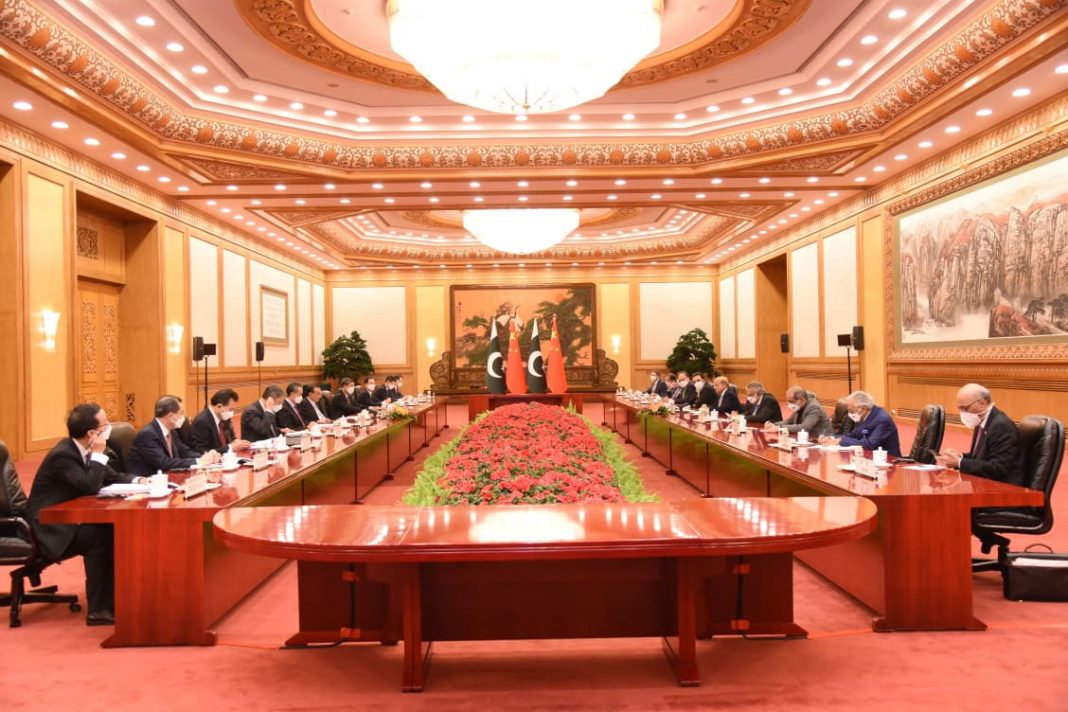By Qian Feng
Pakistani Prime Minister Muhammad Shehbaz Sharif arrived in Beijing, which is his first visit to China since assuming office. It’s continuing positive momentum of close high-level exchanges between China and Pakistan. Prime Minister Sharif is also one of the first foreign leaders to be invited to China after the 20th National Congress of the Communist Party of China, reflecting on the special friendship and strategic mutual trust between the two great nations.
Among the formal partnerships China has established with numerous countries worldwide, the only one that can be called “all-weather” is China-Pakistan bilateral ties. In contrast to many international bilateral relations that seem good, but when the storm arrives, it crumbles. China and Pakistan also enjoy the “higher than the mountain, deeper than the sea, sweet than honey, hard than steel” deep friendship and embrace the “good friends, good neighbors, good partners, good brothers” special relationship for decades.
The relationship relies on the warm hand that the two countries can reach out when each other is in crisis and depend on the spark inheritance of generations of the Chinese and Pakistanis. The brotherhood has long been rooted on every roadbed of the Karakoram Highway, tightened in every screw of the locomotive, and condensed in the sweat of the workers of the China-Pakistan Economic Corridor (CPEC).
The CPEC, which is closely observed by the international community, is the most dazzling strategic achievement of China-Pakistan relations in recent years. It’s of great significance in making up for the short slab regarding economy and trade between the two countries, upgrading Pakistan’s infrastructure construction, addressing basic energy needs, improving the business environment, creating more jobs and benefiting the people along the CPEC.
According to the Pakistan National Bureau of Statistics, the CPEC has invested more than $25.4 billion, created more than 70,000 jobs, as well as another 500,000 jobs, directly or indirectly, in the next five to seven years.
A series of power generation and transmission projects have improved the power supply shortage situation and Pakistan’s total installed power generation capacity has already met domestic demand. Meanwhile, the second phase of the Karakoram Highway upgrading project and Peshawar-Karachi Motorway project have increased capacity of the “main road” of road traffic between China and Pakistan. These projects have changed the constraints of Pakistan’s economic growth based on energy and transportation.
The CPEC has entered a new stage of high-quality development, focusing on production capacity cooperation, agriculture and people’s livelihood. Just a few days before Prime Minister Sharif’s visit to China, the 11th meeting of the CPEC Joint Cooperation Committee was held, reaching a number of consensuses on the next phase of CPEC construction, including the $10 billion Karachi-Peshawar railway project.
Author is a senior research fellow at the National Strategic Institute, Tsinghua University and Taihe Institute
–The Daily Mail-CGTN news exchange item






